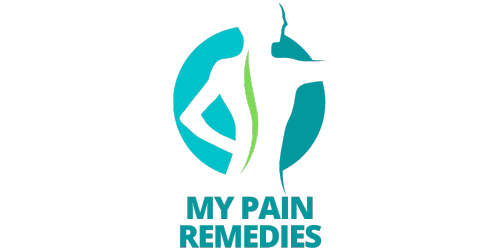If you suffer from trigeminal neuralgia pain, you know how debilitating it can be. The intense, stabbing sensations in your face can interrupt your daily life and leave you feeling helpless. Thankfully, there are natural remedies that can provide relief from this excruciating condition. From herbal supplements to relaxation techniques, exploring these alternatives might just offer you the much-needed reprieve you’ve been searching for. In this article, we will take a closer look at some effective natural remedies for trigeminal neuralgia pain, giving you the opportunity to experience a life with less pain and more joy.

Essential Oils
Lavender oil
Lavender oil is a popular choice for its calming and soothing properties. Known for its aromatic scent, lavender oil can help alleviate stress and promote relaxation. When applied topically, it can provide temporary relief from trigeminal neuralgia pain. To use lavender oil, dilute a few drops in a carrier oil such as coconut or almond oil and gently massage it onto the affected area.
Peppermint oil
Peppermint oil is famous for its cooling sensation and can provide a numbing effect when applied topically. It contains menthol, which has analgesic properties that can help reduce nerve pain associated with trigeminal neuralgia. Mix a few drops of peppermint oil with a carrier oil and apply it to the affected area for relief.
Chamomile oil
Chamomile oil is known for its soothing properties and can help calm inflamed nerves. It has anti-inflammatory and analgesic effects, which make it a suitable option for managing trigeminal neuralgia pain. Dilute a few drops of chamomile oil in a carrier oil and gently massage it onto the affected area for relief.
Eucalyptus oil
Eucalyptus oil has a cooling and analgesic effect, making it an excellent choice for reducing nerve pain. Its anti-inflammatory properties can also help reduce inflammation associated with trigeminal neuralgia. Mix a few drops of eucalyptus oil with a carrier oil and gently massage it onto the affected area for relief.
Herbal Supplements
Turmeric
Turmeric is a popular spice known for its anti-inflammatory properties. It contains a compound called curcumin, which has been shown to possess analgesic effects. Taking turmeric supplements can help reduce the intensity of trigeminal neuralgia pain. It is important to consult with a healthcare professional before starting any new supplement.
Valerian root
Valerian root has been used for centuries as a natural remedy for various conditions, including pain management. It has sedative properties that can help relax the muscles and ease nerve-related pain. Taking valerian root supplements or drinking valerian root tea can be beneficial for trigeminal neuralgia pain relief.
St. John’s Wort
St. John’s Wort is commonly used to treat depression and anxiety, but it can also have analgesic properties. It contains compounds that can help relieve nerve pain and reduce inflammation, making it a potential option for managing trigeminal neuralgia symptoms. Consult with a healthcare professional before using St. John’s Wort as it may interact with other medications.
Passionflower
Passionflower is a herb that has been traditionally used for its calming and pain-relieving effects. It can help reduce muscle tension and promote relaxation, which can be beneficial for trigeminal neuralgia pain. Taking passionflower supplements or drinking passionflower tea can be a natural way to manage the symptoms of trigeminal neuralgia.
Acupuncture
Acupuncture is an ancient Chinese practice that involves inserting thin needles into specific points of the body. This technique is believed to stimulate the body’s natural healing processes and promote pain relief. Acupuncture can be a helpful complementary therapy for trigeminal neuralgia, as it may help reduce pain intensity and frequency. It is essential to seek treatment from a licensed acupuncturist who has experience in treating trigeminal neuralgia.

Heat Therapy
Hot compresses
Applying heat to the affected area can help relax the muscles and alleviate trigeminal neuralgia pain. You can use a hot compress by soaking a towel in warm water and applying it to the affected area for 10-15 minutes. Repeat this process several times a day to experience relief from pain.
Warm showers or baths
Taking warm showers or baths can also provide temporary relief from trigeminal neuralgia pain. The heat helps to relax the muscles and increase blood flow to the affected area. Allow the warm water to gently flow over the face and neck, focusing on the areas experiencing pain. A warm shower or bath can be a relaxing and soothing method to manage trigeminal neuralgia symptoms.
Cold Therapy
Ice packs
Cold therapy can help numb the affected area and reduce inflammation, providing temporary relief from trigeminal neuralgia pain. Wrap an ice pack or a bag of frozen vegetables in a towel and apply it to the affected side of the face or neck. Be sure to only apply ice for short periods, as prolonged exposure can lead to tissue damage.
Nutritional Changes
Anti-inflammatory diet
Following an anti-inflammatory diet can play a role in managing trigeminal neuralgia symptoms. This diet emphasizes whole foods, such as fruits, vegetables, whole grains, and lean proteins, while limiting processed foods, refined sugars, and saturated fats. Incorporating foods rich in omega-3 fatty acids, like salmon and walnuts, can also help reduce inflammation and provide relief from pain.
Increase magnesium intake
Magnesium is an essential mineral that plays a role in nerve function and muscle relaxation. Increasing magnesium intake through dietary sources or supplements can potentially help manage trigeminal neuralgia pain. Foods rich in magnesium include leafy green vegetables, nuts, seeds, and legumes.
Avoid trigger foods
Certain foods may trigger or worsen trigeminal neuralgia pain in some individuals. Common trigger foods include caffeine, alcohol, processed meats, and foods high in sugar or artificial sweeteners. It is important to pay attention to your body and identify any potential trigger foods that may be contributing to your symptoms.
Exercise and Stretching
Yoga
Yoga is a gentle exercise that combines physical postures, breathing techniques, and meditation. It can help improve flexibility, reduce muscle tension, and promote relaxation. Practicing yoga regularly can be beneficial for managing trigeminal neuralgia pain, as it helps release tension in the jaw and facial muscles.
Tai Chi
Tai Chi is a traditional Chinese martial art that involves slow, deliberate movements and deep breathing. This gentle exercise can help improve balance, reduce stress, and alleviate muscle tension. Incorporating Tai Chi into your routine can provide relief from trigeminal neuralgia pain and promote overall well-being.
Jaw exercises
Exercises specifically targeting the jaw muscles can help relieve tension and pain associated with trigeminal neuralgia. Simple jaw exercises include gently opening and closing your mouth, moving your jaw from side to side, and stretching your jaw by placing your tongue on the roof of your mouth and opening wide. These exercises should be performed with caution and stopped if they cause increased pain.
Stress Management
Meditation
Meditation is a practice that involves focusing the mind and achieving a state of deep relaxation. It can help reduce stress, which may trigger or worsen trigeminal neuralgia pain. Practicing meditation regularly can help promote a sense of calm and provide relief from the symptoms of trigeminal neuralgia.
Deep breathing exercises
Deep breathing exercises can help relax the body and reduce stress. Taking slow, deep breaths in through the nose and out through the mouth can activate the body’s natural relaxation response and alleviate trigeminal neuralgia pain. Incorporate deep breathing exercises into your daily routine to experience the benefits.
Biofeedback therapy
Biofeedback therapy utilizes electronic devices to measure and provide feedback on specific physiological processes in the body, such as heart rate and muscle tension. By using this feedback, individuals can learn how to control these bodily functions and reduce pain. Biofeedback therapy can be an effective tool for managing trigeminal neuralgia symptoms, particularly those related to stress and muscle tension.
Chiropractic Care
Chiropractic care focuses on the relationship between the spine and nervous system. By making adjustments to the spine, chiropractors aim to alleviate pain and improve overall health. Chiropractic care may be beneficial for individuals with trigeminal neuralgia, as it can help reduce nerve irritation and promote proper nerve function. It is important to consult with a chiropractor experienced in treating trigeminal neuralgia before starting any treatments.
Self-Care Techniques
Maintaining good oral hygiene
Proper oral hygiene is important for preventing dental infections and reducing the risk of triggering trigeminal neuralgia pain. Regularly brushing and flossing your teeth, using an antiseptic mouthwash, and scheduling routine dental check-ups can help maintain good oral health and minimize the chance of flare-ups.
Avoiding excessive jaw movements
Excessive jaw movements, such as chewing gum or biting into hard foods, can aggravate trigeminal neuralgia pain. Avoiding these activities and opting for softer foods can help reduce strain on the jaw and minimize pain. It is also helpful to consciously relax the jaw throughout the day and avoid clenching or grinding your teeth.
In conclusion, there are several natural remedies and self-care techniques that can help manage trigeminal neuralgia pain. Essential oils like lavender, peppermint, chamomile, and eucalyptus can provide temporary relief when applied topically. Herbal supplements such as turmeric, valerian root, St. John’s Wort, and passionflower may also help alleviate symptoms. Acupuncture, heat therapy, cold therapy, nutritional changes, exercise and stretching, stress management techniques, chiropractic care, and self-care techniques are additional approaches that can be beneficial. It is important to consult with a healthcare professional before trying any new remedies or treatment methods to ensure safety and effectiveness. With a comprehensive approach, individuals with trigeminal neuralgia can find relief and improve their quality of life.


